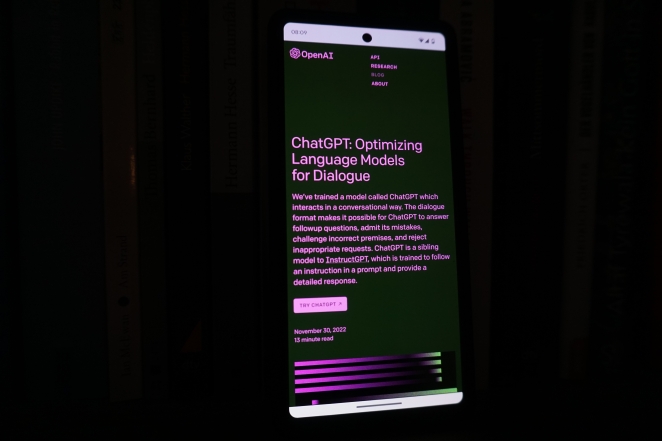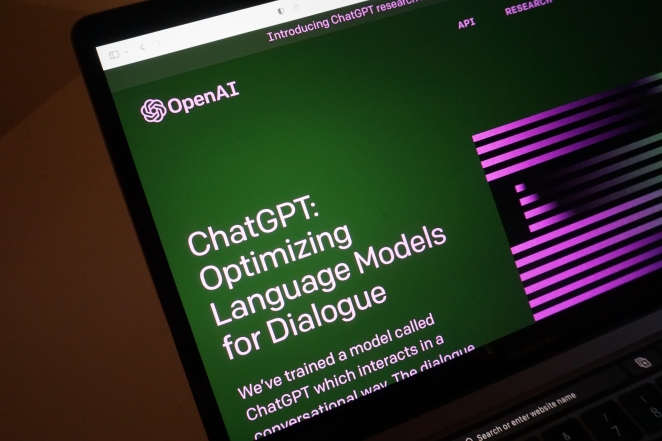Gillian McCurdy, Head of School of Digital Marketing at Arden University discusses how you can be creative with ChatGPT and how it can impact your marketing strategy.
There’s been a lot of talk around ChatGPT and generative AI and all of its creative capabilities, and rightly so. But how creative can the AI chatbot be? Well, I asked ChatGPT “How creative are you?” and it replied: “ChatGPT, like other variants of the GPT-3 architecture, can demonstrate a degree of creativity in its responses.
Its creativity comes from the vast amount of text data it has been trained on, which allows it to generate text that is coherent, contextually relevant, and sometimes novel or unexpected.”
It wasn’t too quick to toot its own horn, however. It did warn me that it had limitations due its creativity being “based on patterns it has learned from its training data” and even though it can be creative within the scope of its training, “it doesn't possess true creative consciousness or the ability to generate entirely original ideas outside the scope of its training data.”
We learn our first lesson here: If we want to be truly creative, especially when it comes to marketing and advertising strategies, human input is needed. This doesn’t come as a shock to us – we know that everyday creativity is something that has enabled us to evolve as humans and that our creative mindset is unique to humans alone.
It’s something that cannot be replicated, or will at least struggle to be replicated with AI alone. So, how can we allow AI, such as ChatGPT, to enhance our marketing strategies while keeping an innovative and out-of-the-box approach?
The pros

As we expect more focus on customer experience in the coming year, businesses will need to put more effort into creating tailored and seamless experiences for customers – this is where AI can help.
ChatGPT can generate human-like conversations to engage with customers to develop quicker responses and increase communication between consumers and your company. It can also provide personalised, real-time customer service, improving customer experience. This helps elevate brand awareness as you can also gather better customer feedback.
With AI taking over many mundane responsibilities, it is also able to automate repetitive customer service tasks to free up time for other marketing initiatives. As an example, ChatGPT can be used to analyse large amounts of data, such as customer feedback and sales data, which can then provide valuable insights into customer preferences and behaviours, allowing you to make more informed decisions about your marketing strategy.
On the creative side of things, ChatGPT also works well by providing prompts or a starting point to get the artistic juices flowing. You can ask the chatbot to provide ideas for a campaign, for instance, which may spark further thought and discussion within your marketing team. When doing this, it’s best to be as specific as possible and assign roles to ChatGPT and instruct it to address particular audiences to make sure it gets the tone right.
The cons

AI language models still have limitations in understanding context, sarcasm, and emotions and so relying on it too much can result in a lack of ‘the human touch’. This can reduce authenticity in customer interactions and may frustrate customers in the long run if there isn’t a person behind the scenes.
ChatGPT – as it told us itself - is a machine learning model and does not have the ability to think or understand the context like a human. This means a lot of the text can read a little dry or too formal.
So if you want it to create blog content or social media captions, it may struggle to properly match your brand’s tone of voice; as a result, you will need someone to polish your content before it goes out live. It’s also important to tread carefully here. If using the free version of the chatbot, your ideas are out there on the web for others to find – meaning confidentiality has been lost.
If using AI to enhance the customer experience by using customer data, there may also be privacy and data security concerns you will need to bear in mind.
All in all, your marketing team will still be the brains behind the creative process when it comes to creating a strong marketing campaign or strategy for your business. AI does have the potential to improve the efficiency and effectiveness of a company's marketing strategy, as it can save companies time, resources, and money, while also providing better customer experiences.
But I would always advise businesses to be wary and ensure you keep the human touch – after all, no one does creativity like humans do.




